GP News – Mar ’16
Contents
- The role of the GP in protecting children in out-of-home care
- Vaccination Providers have until 30 April 2016 to update immunisation records in ACIR
- The 2016 National Immunisation Program influenza vaccines
- The Practice Incentive Program eHealth Incentive
- New to the SNHN Hospital news web page
- Dementia diagnosis and current treatment recommendations workshop
- National Bowel Cancer Screening Program 2016
- Study at RNSH to Reduce Drug Burden Index in Older Inpatients
- My Aged Care
- Expressions of Interest for GPs
- Closing the Gap on Eye Health
- A new Carer Guide for GPs is now available
- Free vision screening for 4 year olds
The role of the GP in protecting children in out-of-home care
Children and young people in out-of-home care (OOHC) are recognised as a highly vulnerable group and often have a range of unidentified and untreated health issues. The time at which a child or young person enters OOHC provides an important opportunity for General Practitioners and other health professionals to assess the child’s health, development and wellbeing.
A Primary Health Screen should be commenced within 30 days of the child or young person entering out-of-home care.
The following information is a guide for GPs on how to conduct a primary health screening, what resources are available and the appropriate referral pathways.
GP Resources for Out-of-home care
- Completing primary health screening for children and young people in out-of-home care
- A guide for health practitioners flowchart
- Referral pathways for children in out-of-home care
- Red flags
- 2a Under 1 year OOHC Health Assessment
- 2a 1-5 years OOHC Health Assessment
- 2a 6-11 years OOHC Health Assessment
- 2a 12-18 years OOHC Health Assessment
To report suspected child abuse or neglect, call the Child Protection Helpline on 132 111 (24 hours/7 days).
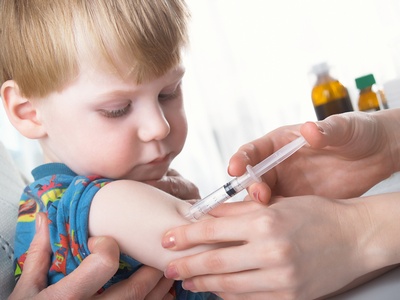
Vaccination Providers have until 30 April 2016 to update immunisation records in ACIR
After 30 April 2016 a parent’s eligibility for child care payments will be ceased if their child’s immunisation records are not up to date with the Australian Childhood Immunisation Register (ACIR), under the new No Jab, No Pay measure introduced by the Australian Government on 1 January 2016.
Parents in receipt of Child Care Benefit (CCB) and Child Care Rebate (CCR) whose children’s immunisations were not up to date as at 31 December 2015, were given a 63 day grace period (ending 18 March 2016) at the start of the measure to get their child’s immunisations up to date.
Early indications are that the No Jab, No Pay measure has resulted in a greater than anticipated demand for vaccinations and updating of vaccination histories, and this is causing delays for some vaccination providers / clinics being able to transfer vaccination records to the ACIR. Because this processing delay is beyond the control of parents and to ensure those who have taken action and immunised their children are not disadvantaged when the grace period ends, child care subsidies will be paid until 30 April 2016 while vaccination records on the register are updated.
While payments will continue to 30 April 2016, those parents who have not taken action to immunise their children by the end of the 18 March 2016 grace period may incur a debt which they will have to repay to Centrelink.
The grace period does not extend to new customers claiming CCB and CCR. New customers must be up to date when they apply to receive these payments.
In addition to CCB and CCR, the No Jab, No Pay policy also applies to the Family Tax Benefit (FTB) Part A supplement, but the delay in updating vaccination records will not affect the 2015-16 supplement, as it is paid after 30 June 2016.
Article Source: Northern Sydney Public Health Unit
The 2016 National Immunisation Program influenza vaccines
This year, two quadrivalent influenza vaccines (QIVs) will be available free of charge to eligible people under the National Immunisation Program:
- Sanofi’s FluQuadri® Junior for children under three years of age.
- GSK’s Fluarix ® Tetra for people aged three years and older.
Trivalent influenza vaccines (TIVs) will not be provided under the National Immunisation Program in 2016. TIVs and QIVs will be available to purchase on the private market.
The Australian Technical Advisory Group on Immunisation (ATAGI) recommends the use of QIVs in preference to TIVs. However, TIVs are an acceptable alternative particularly if QIVs are not available.
CLICK HERE for the Chief Medical Officer’s Letter to Vaccination Providers
CLICK HERE for ATAGI advice.
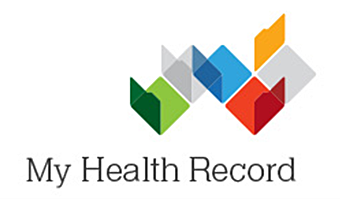
The Practice Incentive Program eHealth Incentive
By Helen Purdy, SNHN eHealth Coordinator
To encourage use of My Health Record by general practice the Practice Incentives Program (PIP) eHealth Incentive will change from 1 May 2016 and cover the period May – July 16 for the August 2016 payment quarter.>
What will this mean for my practice?
Practices who have been receiving the Practice Incentive Program eHealth Incentive (ePIP) will now need to re-apply for the Practice Incentive Program Digital Health Incentive. The Department of Human Services (DHS) will be sending each practice correspondence over the next few weeks advising of how to reapply.
What are the new Digital Health Incentive criteria?
To meet the criteria for the new Digital Health Incentive each practice will be required to upload shared health summaries to the My Health Record for at least 0.5% of their practice’s standardised whole patient equivalent (SWPE) per quarter. The Department of Human services will advise what your current SWPE count is in their correspondence to you so that you can determine what your quarterly upload will be.
In addition to this new requirement the other five requirements for meeting the previous ePIP criteria will continue to apply.
CLICK HERE for more including the five Practice Incentive Program (PIP) Digital Health Incentive Requirements
How can we tell if our software is ready to engage with the new My Health Record?
Ensure that your software has the correct, current digital certificates installed (NASH and PKI) and that your organisational identifier (HPI-O) and the identifiers of your medical and nursing staff (HPI-Is) have been entered into the software. To test this go to your patient’s details and validate their IHI. If you get an error message please contact your IT provider, your software vendor or the NEHTA Customer Care Team on 1300 901 001.
How can we upload Shared Health Summaries if our patients don’t have a My Health Record?
Practices can create a My Health Record for their patient in less than a minute using the Assisted Registration function within their clinical information systems software. The record is active as soon as it is created so patients can register as they wait, proceed to the consult and have a shared health summary uploaded immediately. There is no longer any requirement to have a patient sign a hard copy consent form to apply). Patients can also register for their own record online.
CLICK HERE for the My Health Record registration page or Tel: 1800 723 471 to register over the phone.
How can we access training and support materials to meet the new criteria?
NEHTA’s ‘on demand training’ environment can enable simulations for patient registration and uploading shared health summaries.
CLICK HERE for training resources.
New to the SNHN Hospital news web page
The Hospital News page is a regularly updated resource for GPs that provides news about Northern Sydney Local Health District referral pathways and services.
CLICK HERE for GP Referral to the Acute Assessment Unit at Royal North Shore Hospital.
CLICK HERE for Accessing Hornsby Ku-Ring-Gai Hospital Emergency Department – Info for GPs.
CLICK HERE for Hospital Avoidance Services – Aged Care.

Dementia diagnosis and current treatment recommendations workshop
Last January, SNHN held a dementia diagnosis and current treatment recommendations workshop for Health Professionals. The key note address was made by Geriatrician, Professor Susan Kurrle. Her presentation as well as presentations on the Aged Care Portal and the new Aged Care Assessment are now available to view:
CLICK HERE for Prof Susan Kurrle’s video presentation.
CLICK HERE for Prof Susan Kurrle’s dementia diagnosis and current treatment presentation.
CLICK HERE for the 14 Essentials for good dementia care in general practice.
CLICK HERE for the overview of ACAT and the new referral process through My Aged Care – Maris Tonkin.
CLICK HERE for the overview of My Aged Care Portal – Lyn Silverstone.
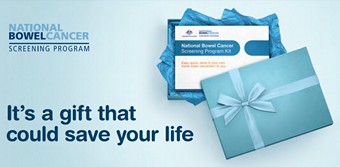
National Bowel Cancer Screening Program 2016
Bowel cancer is the second biggest cancer killer in Australia, with 80 Australians dying each week from this disease. But, if detected early, up to 90% of cases can be successfully treated.
The National Bowel Cancer Screening Program is saving lives. Evidence from the Program has shown that Program invitees had 15% less risk of dying from bowel cancer, and were more likely to have less-advanced bowel cancers when diagnosed, than non-invitees..
To read the latest news about Bowel Cancer screening CLICK HERE.
Study at RNSH to Reduce Drug Burden Index in Older Inpatients
GPs in Sydney’s north may soon be asked to participate in a study that aims to review and minimise the use of anticholinergic and sedative medicines in patients aged >70 years who are admitted to RNSH. These medicines cumulatively impair physical and cognitive function in older adults, but are rarely reviewed during routine hospital care.
The Drug Burden Index (DBI) is a clinical risk assessment tool to determine the functional burden of an older patient’s medications. It measures a patient’s total exposure to medicines with sedative and anticholinergic effects, including dose. Higher DBI is associated with functional impairment, falls, frailty, hospitalisation, GP visits and mortality in older adults.
Participating older patients in the intervention group will have a report on Drug Burden Index considered by their treating team. Where possible, the treating team will discuss the report with the patient, GP and any other specialists involved, and make a plan for the patient’s anticholinergic and sedative medicines. In many cases, a gradual withdrawal plan may be required, which will need to be implemented after discharge by the patient’s GP.
The GP will receive a DBI report and plan as an attachment to their patient’s discharge summary. GPs are asked to please return comments on their patient’s DBI report and describe their actions regarding the recommendations. This should take approximately two minutes per patient.
This research is being conducted by Professor Sarah Hilmer, Dr Terry Finnegan, Ms Jenny Crane and Ms Rayan Nahas of Royal North Shore Hospital and Dr Danijela Gnjidic, Dr Emily Reeve and Ms Lisa Kouladjian of the University of Sydney. It has been approved by Northern Sydney LHD Human Research Ethics Committee and is funded by NSW Agency for Clinical Innovation.
Article by Prof Sarah Hilmer – Head of Department of Clinical Pharmacology and Senior Staff Specialist Aged Care, RNSH.
Enquiries: Please address any comments or queries to Prof Sarah Hilmer, e: sarah.hilmer@sydney.edu.au or Tel: 9926 4481.
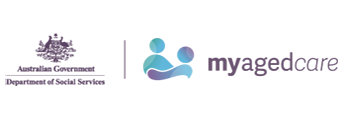
My Aged Care
On 1 July 2015, the Commonwealth changed the way older people access aged care services by introducing My Aged Care.
My Aged Care (MAC) is the first point of contact for individuals seeking information about aged care and access to aged care services.
Hence it is likely to be relevant to many patients, particularly in the following situations:
- A family member is concerned about an older person and needs to understand the care options available.
- A patient is presenting with a declining ability to manage their activities of daily-living and need to either plan for the future or access services now.
- You have questions around the sustainability of a patient’s current care arrangements.
GPs should refer suitable patients to My Aged Care to ensure their aged care needs can be assessed holistically and the right services put in place to support their needs, goals and service preferences.
For individuals who are already receiving aged care services, there is no need for them to register with My Aged Care. However, if their needs and/or circumstances change significantly, then they need to be registered.
How to make a referral to My Aged Care on behalf of your patient
Use the online ‘Make a Referral’ form
You can also add an attachment to the information that you enter into the form
OR
Call MAC: 1800 200 422
(8am-8pm: weekdays, 10am-2pm: Saturdays)
The patient does not have to be present for a phone referral, however patient consent is required
OR
Fax MAC: 1800 728 174
You may like to use the ‘Make a Referral‘ form as a template
To keep up to date with changes to the Aged Care Sector, please subscribe to Northside’s Monthly eBulletin at: http://www.nsforum.org.au/sector-support/ebulletin
Article by Rosanna Commisso – Home Support and Partnership Coordinator, Northside Community Forum Inc.
Expressions of Interest for GPs
SNHN is now calling for Expression of Interest from local GPs for the following roles:
- Lead health talks for an Adult Migrant English Program at the North Sydney Institute (NSi) TAFE English as Second Language (ESL) – CLICK HERE to read more.
- General Practice Representatives for various areas – CLICK HERE to read more.
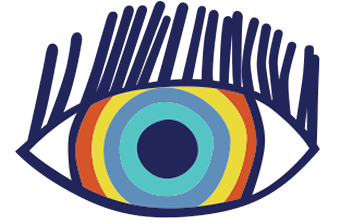
Closing the Gap on Eye Health
The Coalition Government has shown its commitment to eliminating avoidable blindness and vision loss in Aboriginal and Torres Strait Islander people with $2.5 million in funding to provide continued support to the Indigenous Eye Health Unit at the University of Melbourne.
Aboriginal and Torres Strait Islander people are two and a half times more likely to report having complete or partial blindness compared to non-Indigenous Australians.
The Indigenous Eye Health Unit provides expert advice and technical support on trachoma control, which is already helping to improve the eye health of Indigenous Australians.
CLICK HERE for Patient Resources from the Indigenous Eye Health Unit.
READ MORE for the Media Release.
A new Carer Guide for GPs is now available
Carers are a recognised group who have an important role to play in our health care system. They support a patient in their journey: in communicating, participating in health decisions and in looking after the patient’s health and wellbeing at home.
Carers can often neglect their own health and in many cases it’s only a matter of time before they become sick. As a health professional, it’s important you can identify a carer and provide them with the much needed help and support they deserve.
The Carer Guide aims to provide information to general practitioners (GP’s) on the caring experience: what it means to be a carer, the impact of caring for another person as well as how a GP can support those important partnerships in caring.
Source: NSLHD
CLICK HERE to link to the Carer Guide for GPs and practice teams.
CLICK HERE for more information about care services.
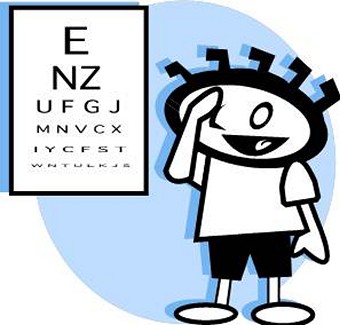
Free vision screening for 4 year olds
The StEPS program is a free vision screening program for 4 year old children. The program is designed to identify childhood vision problems which cannot be detected by observation, behaviour, family history or vision surveillance.
Children attending preschools, child care centres, early intervention services, refugee services, Child & Family Health Clinics, Department of Education and Training (DET) Schools for Specific Purposes, Schools for Autism, playgroups, community vision screening days, immunisation clinics etc. will be targeted for testing.
For children that do not attend these services, their parents or carers can book them into a pop-up clinic. CLICK HERE for the pop-up clinic schedule.
If a parent would like their 4 year old child to attend one of the upcoming vision screening clinics please call the StEPS Office on 9462-9550 to make a booking.
Resources for GPs and Families CLICK HERE.
[contentblock id=1 img=gcb.png]
